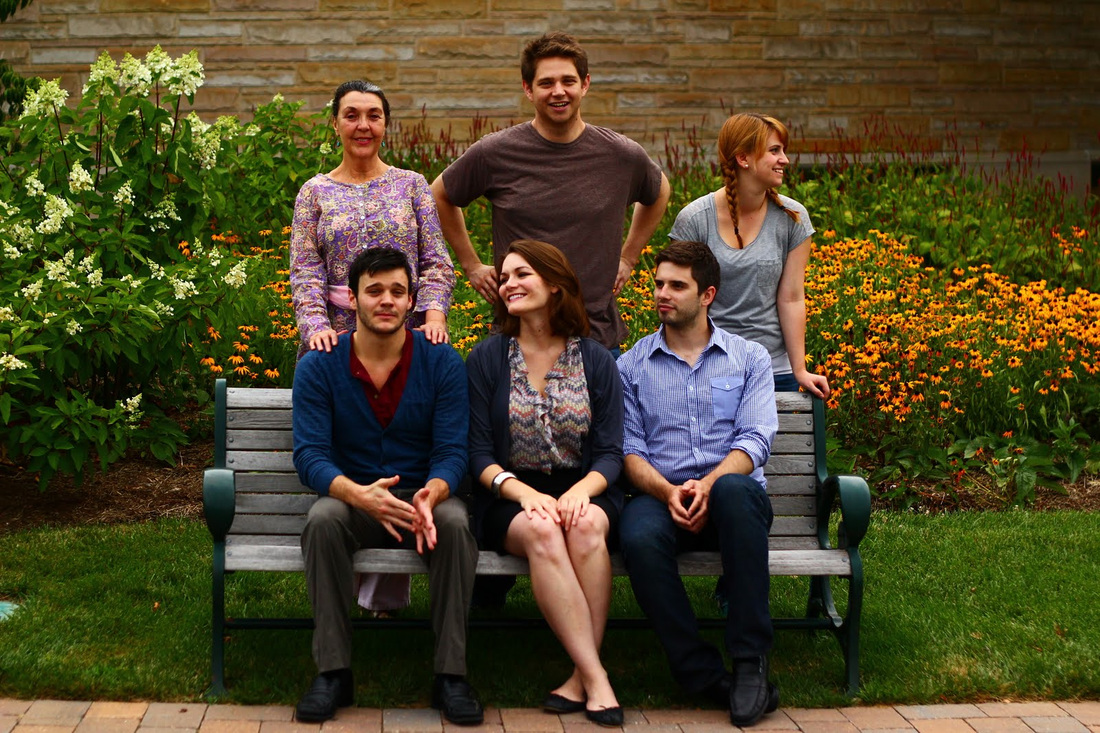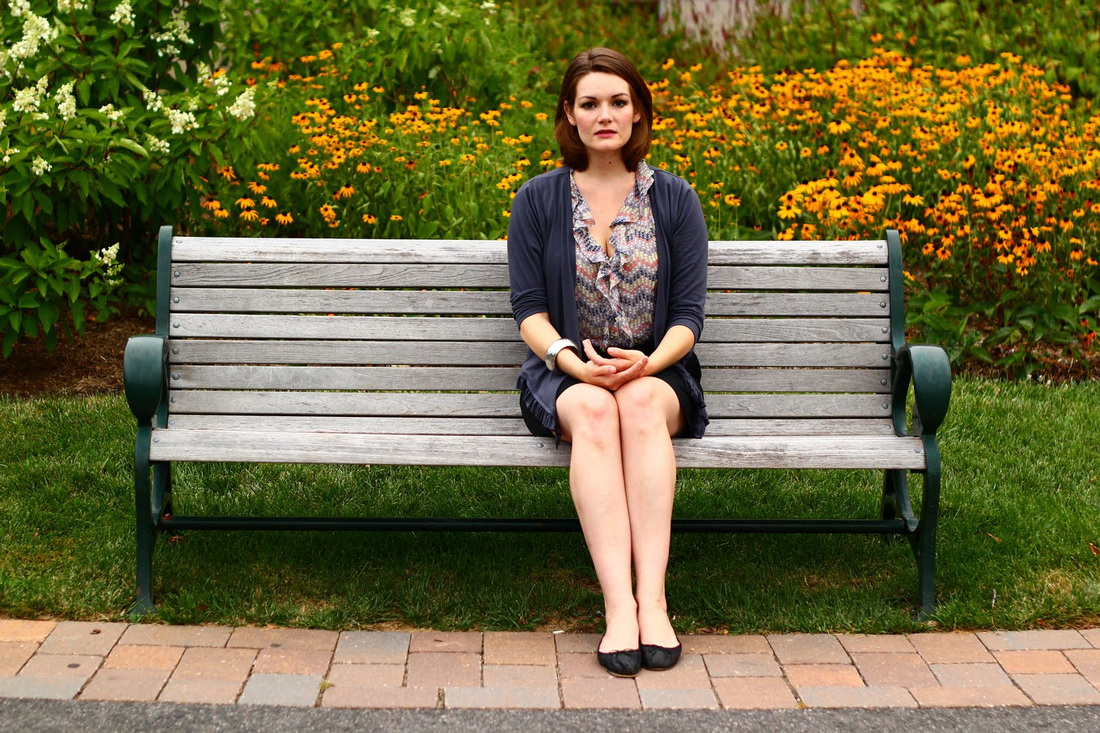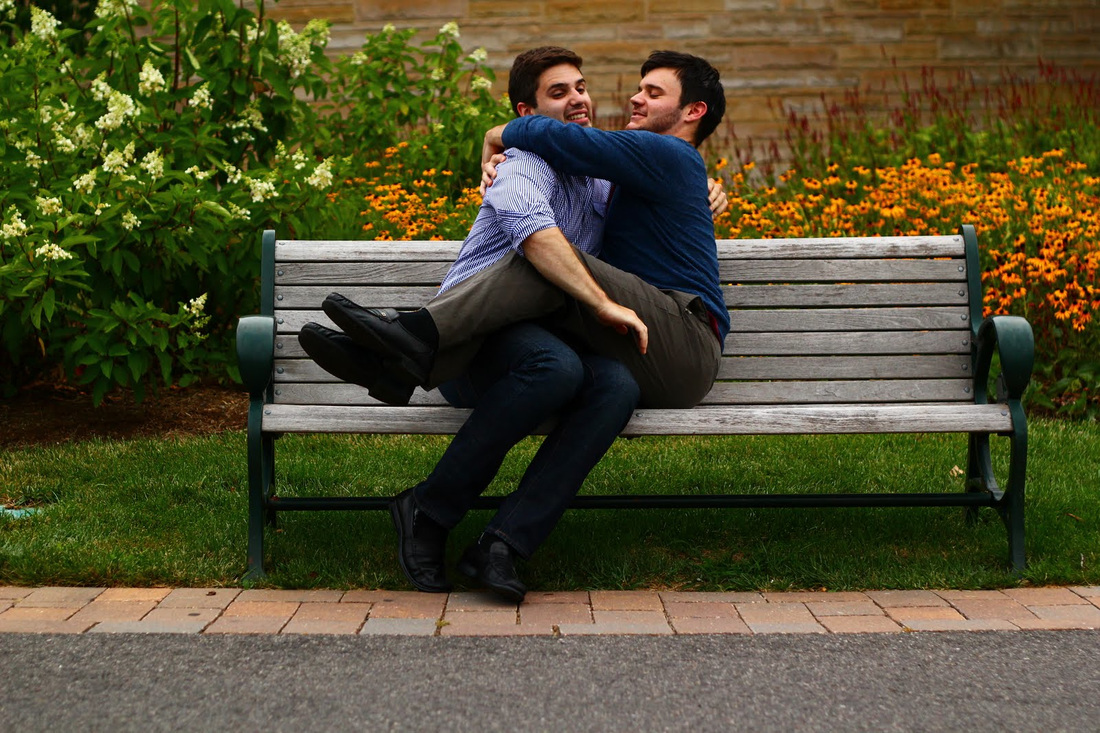|
JL: How long have you lived and worked as a playwright in DC? What brought you here? Why have you stayed?
DM: I've lived and worked as a playwright in DC for just over a year. I moved here to become the Company Manager/Production Management Apprentice at The Studio Theatre. I had just graduated from Emerson College and was in a post-grad school "What now?" I was hired by Studio just after July 4th and moved to DC two weeks later. I had my DC playwriting debut in the 10th Annual Page-to-Stage Festival as part of the Playwrights' Slam. And after my apprenticeship ended, I decided to stay despite the fact that I was (at the time) what one would call "underemployed." I owe the DC-Area Playwrights a lot of the reason for staying. The other reason was so that I could continue to build up my own theatre company -- Field Trip Theatre. JL: Have you ever been a member of a DC area playwrights writing group? If so, did you find it useful? Would you recommend that other playwrights join them? DM: I'm one of the co-moderators of the group now, so of course I would recommend that everyone join. Gwydion Suilebhan is reason enough to lurk on the boards. He's always asking the tough questions about the state of DC playwrights. JL: In DC, we have the Capital Fringe Festival, the Intersections Festival, the Source Festival, the Kennedy Center's Page-to-Stage Festival, the Black Theater Festival, and the Hip Hop Theatre Festival. We also have the Mead Lab at Flashpoint Theater Lab Program. Have you participated in any of these? If so, can you speak about your experience? DM: I've participated in the Kennedy Center's Page-to-Stage Festival -- I'm going on my second year now, actually -- and the Capital Fringe Festival. Any reason to hear your work aloud -- whether that be in staged reading at Page-to-Stage or fully produced at the Capital Fringe Festival -- is time well spent. I feel weird saying it because I'm a relatively young playwright, but it will help you grow as a writer and as an artist. You'll throw yourself in writing seclusion and you'll write more than you ever have in your life and your friends will never see you, but you have to seize those opportunities. They come along for us playwrights so seldom. JL: What kind of work do you do to pay the bills? How do you balance this work with your writing? DM: Until a few months ago I was an apprentice and Company Manager. I learned a lot in that year, but it really hurt my writing. I was always on call and my hours were all over the place. I recently got a job working in HR at one of The District's regional theatres and that schedule suites me much better. I'm still working in theatre, but I have a 9-to-5 schedule. When I get off work, I'm able to turn off my phone and just write. It's bliss. JL: How many plays have you had produced in the DC area? Were any of these plays self-produced? If so, where and what did you learn from that experience? DM: As of this weekend, seven. Six of those productions were staged readings and one was the full production of Stopgap at the Capital Fringe Festival. I work a lot with my own theatre company (Field Trip Theatre), but I've also worked with Artists' Bloc and Georgetown Theatre Company. JL: If you could be produced at any theatre in DC, which would it be and why? DM: Woolly Mammoth. No question. JL: DC audiences are ... DM: Incredible. So many strangers have come to see my plays and every time I look around and say, "You know we don't know each other, right? You don't have to be here." JL: DC actors, designers and directors are ... DM: So smart. Or maybe I've just been lucky. JL: DC critics are ... DM: Well, I kind of love Peter Marks. Anyone who compares me to Wendy Wasserstein is okay in my book. Check out his review of my play, Stopgap! JL: How do you feel the DC theatre community has addressed the issues of race and gender parity ? How has this particular issue impacted you and your ability to get your work produced on the main stages? DM: I don't think that theatres look at the title page and say "This is written by a woman. That's ridiculous!" But when you step back and look at the season at a whole, you'll notice that there's a pathetic number of women represented. And this isn't just in playwrights, but in directors and actors as well. But this isn't just a DC problem. This is a pattern across the entire country. JL: What advice do you have for an up and coming DC based playwright or a playwright who has just moved to D.C.? DM: Submit everywhere. Talk to everyone. Write everywhere. And see as much theatre as you can. Even the bad stuff. JL: What's next for you as a playwright? Where can we keep up with your work? DM: I have two plays in the Kennedy Center's Page-to-Stage Festival this weekend. (Artists' Bloc presents The Crow on Saturday, September 1 at 7:30PM and Field Trip Theatre presents Jim and Paul Meet in Dreams on Monday, September 3 at 3:30PM.) After that, I have a couple of projects lined up. But I won't talk about them until I have a draft out that I'm happy with. (All this and mysterious too.) I tweet all the time (@daniellemohlman) and you can check out Field Trip Theatre at fieldtriptheatre.tumblr.com
0 Comments
Your comment will be posted after it is approved.
Leave a Reply. |
My BlogI'm a playwright, dramaturg, and teaching artist. It is here where you'll find my queries and musings on life, theater and the world. My posts advocate for diversity, inclusion, and equity in the American Theatre and updates on my own work. Please enjoy!
Categories
All
Archives
June 2020
Reading List
|



